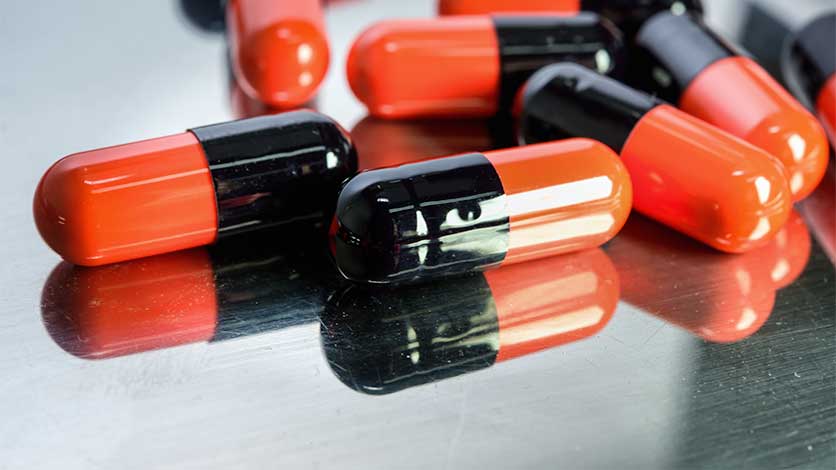Dexedrine Addiction | Abuse, Effects, Signs, & Treatment
When used as prescribed, Dexedrine is generally safe for ADHD and narcolepsy. However, some people abuse it. This behavior poses serious health risks, including increased side effects, overdose, and addiction. Luckily, Ohio offers treatment options for Dexedrine abuse and addiction.

Dexedrine is the brand name for a prescription stimulant medication called dextroamphetamine. As a central nervous system stimulant, it makes you feel energized and alert. It’s used to treat attention-deficit/hyperactivity disorder (ADHD) and narcolepsy (excessive sleepiness).
When used as prescribed, Dexedrine is generally safe. However, some people abuse the drug. Dexedrine abuse poses serious risks, including addiction.
What Is Dexedrine Abuse?
The United States Food and Drug Administration (FDA) and Drug Enforcement Administration (DEA) classify Dexedrine as a Schedule II Controlled Substance. That means it has a high potential for abuse.
Dexedrine abuse occurs when you use the drug in a manner not prescribed by your healthcare provider. For example, you might:
- use it more often than prescribed
- use higher doses than prescribed
- use it without a prescription
- mix it with other drugs, such as alcohol or opioids
- crush and snort the tablets
People abuse Dexedrine for different reasons. Because the drug boosts concentration, many college students abuse it to enhance their academic performance. Other people abuse it to experience euphoria (intense joy) and increased confidence.
Effects Of Dexedrine Abuse
When you abuse Dexedrine, you face a variety of health risks, including increased side effects, overdose, and addiction.
Increased Side Effects
Like other prescription drugs, Dexedrine can have side effects. The most common side effects include:
- dry mouth
- unpleasant taste
- headache
- changes in sexual ability or drive
- weight loss
- constipation
People who abuse Dexedrine are more likely to experience these side effects. They may also experience rarer, more serious side effects, including:
- dizziness
- severe drowsiness
- trouble speaking
- mood changes
- irritability
- paranoia (feeling irrationally suspicious of others)
- delusions (holding beliefs that conflict with reality)
- hallucinations (seeing, hearing, or feeling things that aren’t really there)
- confusion
- sweating
- high blood pressure
- muscle stiffness or twitching
- numbness or weakness in an arm or leg
- pain, burning, or tingling in the hands or feet
- unexplained wounds on the fingers or toes
- seizures
Dexedrine can also cause stroke, heart attack, and sudden death, especially in people with heart defects or serious cardiovascular problems.
Overdose
If you take high doses of Dexedrine or mix it with other drugs, you may overdose. Common symptoms of Dexedrine overdose include:
- restlessness
- confusion
- panic
- dark red urine
- nausea and vomiting
- diarrhea
- fast breathing
- irregular heart rate
- uncontrollable shaking of a part of the body
- seizures
- loss of consciousness
Call 911 right away if you or someone you know experiences these symptoms. When left untreated, a Dexedrine overdose may be life-threatening.
Addiction
Like other types of drug abuse, Dexedrine abuse can lead to drug addiction (also called substance use disorder). That’s because the drug increases the amount of dopamine in your brain. Dopamine is a neurotransmitter (brain chemical) involved in pleasure, motivation, and reward.
When you abuse Dexedrine, the unnaturally high levels of dopamine can be addictive.
Signs Of Dexedrine Addiction
Dexedrine addiction is a serious disease that makes you feel unable to control your Dexedrine use. The most common signs are tolerance and physical dependence.
Tolerance means your body gets used to Dexedrine over time. You then need increasingly higher or more frequent doses to feel the desired effects.
Physical Dependence & Withdrawal
Physical dependence means your body starts relying on Dexedrine to function normally. If you stop using it, you may experience withdrawal symptoms such as:
- increased appetite
- fatigue
- trouble sleeping or excessive sleeping
- strange dreams
- slow movements
- irritability
- depression
Dexedrine abuse is not the only cause of tolerance and physical dependence. Some people also develop these symptoms after using the drug as prescribed for a long period of time.
Behavioral Signs
Other signs of Dexedrine addiction may include:
- frequent cravings for Dexedrine
- mood swings
- loss of interest in activities once enjoyed
- loss of motivation
- trouble concentrating at work or school
- avoidance of family and friends
- decline in personal hygiene
Dexedrine Addiction Treatment Options
If you or someone you love shows signs of Dexedrine addiction, seek help at a substance abuse treatment center.
Some treatment programs are inpatient, meaning you live at the rehab center and receive 24/7 supervision. Other programs are outpatient, meaning you regularly visit the rehab center while living at home.
Both inpatient and outpatient programs offer a variety of treatments, including:
- medical detox, in which doctors help you manage withdrawal symptoms as you stop using Dexedrine
- behavioral therapy, in which a mental health professional helps you cope with Dexedrine cravings and any mental health concerns that may have contributed to your substance abuse
- support groups, in which you can discuss your experiences and coping strategies with other people recovering from drug use
- aftercare planning, in which your treatment team will help you plan strategies to promote your well-being and reduce your risk of relapse
To learn more about Dexedrine addiction treatment options, please reach out to Ohio Recovery Center. Our board-certified treatment providers offer personalized, evidence-based care to help you or your loved one stay healthy.
- Food and Drug Administration https://www.accessdata.fda.gov/drugsatfda_docs/label/2007/017078s042lbl.pdf
- National Institute on Drug Abuse https://nida.nih.gov/publications/drugfacts/prescription-stimulants
- National Library of Medicine: MedlinePlus https://medlineplus.gov/druginfo/meds/a605027.html

